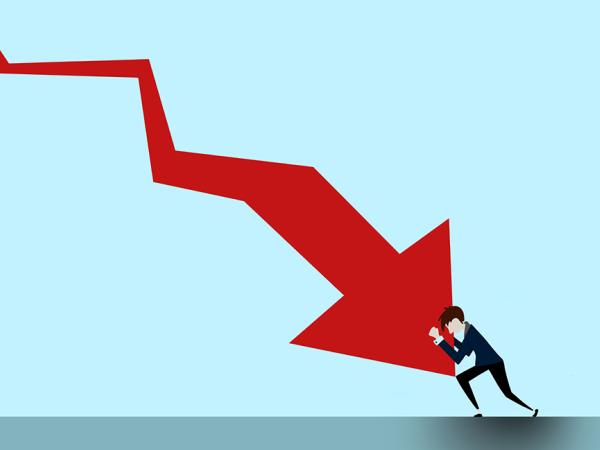The increase in the price of gasoline, as a result of the Russian invasion of Ukraine, has generated concern around the globe, and is deepening the inflationary problem that affects many of the world’s economies.
But there is another fuel derived from petroleum that has become even more expensive – in June it reached its maximum historical price – and is causing even bigger headaches than gasoline.
This is diesel, also known as diesel or gas oil.
What most worries the experts is that the rise in the price of this distillate is due to the fact that there is a global shortage of diesel, something that – they assure – will be difficult to reverse in the short term.
You may think that this does not affect you since you do not have a car, or you do have one, but it runs on gasoline.
However, even if you have never used diesel in your life, this crisis will impact your pocket, wherever you are.
Because diesel is the fuel used by most cargo vehicles, from the trucks that transport our food, medicines and even the gasoline that we fill at service stations, to the ships that transport goods around the globe.
It is also what many buses and trains use.
And it is the fuel that both industries depend on to power their machines and agricultural producers to run their tractors and be able to sow and harvest.
For this reason, the lack of diesel is generating serious problems around the globe, which threaten to spread if demand continues to exceed supply.
The shortage of this fuel is causing mobility problems in places as scattered as Sri Lanka, Yemen and several African countries.
The increase in diesel prices has also generated protests from indigenous communities and peasants in Ecuador.
Another region where the crisis has caused enormous concern is Europe.
And it is that -unlike what happens in many other parts of the world- in the old continent many of the drivers of private cars use diesel, because it is a more efficient and less polluting source of energy than gasoline.
Before Russia attacked Ukraine, Europe imported about two-thirds of the crude it refined to produce diesel from the first country.
But, following economic sanctions imposed on Moscow by the West, Europe has depended on the United States for much of its diesel.
Although this has prevented shortages, the impact on pockets has been notorious, with record prices on both sides of the Atlantic.
While Britons today pay more than £100 ($125) to fill up their car – worth about $2.30 per liter – truck drivers in the US pay $1.50 the liter, the highest value ever recorded in that country.
“Price increases are so high in some states that truckers are having to pay out of pocket to load, and many are being more selective about the trips they take.”
“Some smaller trucking companies are struggling to pay wages and are considering downsizing or even closing operations due to high costs,” Fortune magazine reported in mid-May.
For its part, the Wall Street Journal noted that “costs are particularly affecting the smaller truck fleets that make up the bulk of the highly fragmented US truck market.”
At the other end of the American continent, the shortage of diesel is generating more chaos.
On the routes of central and northern Argentina, there are long lines of trucks waiting to load this fuel, the sale of which has been limited in many places to 20 liters per vehicle (a small fraction of what they load).
Nineteen of the 23 Argentine provinces have supply problems, according to a study carried out at the beginning of June by the Argentine Federation of Freight Transport Business Entities (Fadeeac).
“The lack of diesel threatens to harm one of the most key moments for the ailing Argentine economy: the heavy harvest and subsequent planting of grains and oilseeds, such as soybeans, corn and sunflower, which are the country’s largest export good. “, said the BBC World journalist in Buenos Aires, Veronica Smink.
Smink explained that the lack of diesel worsened in Argentina because local factors were added to the shortage of supply worldwide, which further complicated the picture.
“Nearly a third of the diesel consumed in the country is imported and oil companies not only find it more difficult to obtain, due to the effects of the war in Ukraine, but also importing it at current prices is not profitable for them, due to the low local prices imposed by the government,” he said.
But the Russian invasion is not the only reason why diesel is missing.
Even before Vladimir Putin ordered the offensive, at the end of February, world demand for diesel already exceeded supply.
The main reason for this mismatch, according to experts, was the coronavirus pandemic.
The economic paralysis caused by the quarantines in 2019 and 2020 caused fuel use to plummet, leading refineries to reduce their diesel production.
Some even closed their doors permanently and others decided to convert to refine renewable fuels, as part of a transition of the energy sector towards cleaner and more environmentally friendly sources.
As the world got back on its feet, beginning in 2021, demand for diesel quickly outstripped supply.
Adding to the problem was the rapid resumption of commercial flights, as jet fuel is made from the same amount of crude oil as diesel.
Reuters market analyst John Kemp warned that rising demand has led many countries in North America, Europe and Asia to deplete much of their diesel stocks.
In Europe and the US, stocks fell to their lowest levels since the 2008 financial crisis, he said.
A US government official told reporters in late May that President Joe Biden is discussing the option of using an emergency diesel stockpile, created in the northeast of the country more than two decades ago, and until now had only been used once to alleviate the effects of Hurricane Sandy, in 2012.
The primary objective would be to increase the supply of fuel to lower prices, which have contributed to the US registering its highest inflation in four decades, something that could tarnish the performance of the ruling Democratic Party in the parliamentary elections next November.
However, analysts warn that the effects of releasing the northeast’s emergency reserve will be limited, since the million barrels of diesel that would be dumped on the market would not be enough to impact prices.
For Kemp, the global lack of diesel “heralds an imminent economic slowdown.”
“The global shortage of diesel indicates that the economic cycle is reaching its peak and that a period of slower growth or even a recession is imminent to bring consumption back in line with production,” he said.
The latest World Bank (WB) economic report, presented this week, confirms that “a sharp slowdown in growth” is being seen, and warns that this could generate “stagflation”, as low economic growth combined with high inflation.
“For many countries it will be difficult to avoid recession,” David Malpass, president of the World Bank Group, said when he launched the report on June 7.
The World Bank estimates that the growth of the world economy in 2022 will be 2.9%, about half of what it reached in 2021 (5.7%).
For its part, the Organization for Economic Cooperation and Development (OECD) reduced its global economic growth forecast for this year from 4.5% to 3%, and estimated that in its 37 member countries there will be an average annual inflation of 8 ,5%.
Now you can receive notifications from BBC World. Download the new version of our app and activate it so you don’t miss out on our best content.
BBC WORLD
















